Future proofing rural and coastal communities
Remote community issues and the role of place-based philanthropy in all landscapes.

With Michelle Cooper, CEO at Point North, and Tamas Haydu, CEO at Cornwall Community Foundation
Beautiful coastlines and tranquil countryside retreats around the UK are often on the holiday agenda for many. However, for the millions of people living and working in these communities, their beautiful surroundings serve as a cloak, hiding deep-rooted inequalities that lie beneath.
Community foundations support the needs of communities in a wide range of geographical settings. In counties like Cornwall and County Durham, a majority of the landscape is made up of small towns, countryside and coastline. Michelle Cooper, CEO at Point North, and Tamas Haydu, CEO at Cornwall Community Foundation, share insights around the issues they are identifying across the counties they work with and the necessity of place-based philanthropy in all landscapes.
What are some of the major challenges for rural and coastal communities?
Current and long-existing issues within rural or coastal regions include a lack of access to basic amenities, poor travel and social infrastructures, and limited employment opportunities.
Tamas: "Cornwall is one of the most popular holiday destinations in the UK. Most people are familiar with the rugged coastline and sandy beaches, Cornish pasties or even the fine cuisine offered by many celebrity chefs. However, behind the scenes of perfect holidays lies another Cornwall with high levels of poverty, rural isolation and lack of opportunities."
 Coastal towns often hide high levels of poverty
Coastal towns often hide high levels of poverty
 Derwent Reservoir in County Durham
Derwent Reservoir in County Durham
Michelle: "As a largely rural county with a stretch of coastline, County Durham has been hit hard by the cost-of-living crisis.
"For people in rural areas, transport costs have escalated, and the cost of heating homes in the winter of 2022 rocketed by 200%."
Official ONS figures show that people living in rural and seaside areas are often blighted by high unemployment and few major employers. A study led by The Talent Tap and The Aldridge Foundation into social mobility opportunities in rural communities revealed that in rural and coastal regions, young individuals in Britain are twice as likely to abandon their career aspirations compared to their urban peers. Research also showed that 23% of rural and coastal young people would forgo potentially transformative work experience in a city due to financial constraints.
Tamas: "In Cornwall, wages are 20% lower than the national average and many of the jobs are part time, seasonal or on insecure zero-hours contracts. Only 11% of the housing stock in Cornwall is social housing, compared to the national average of 18%, and a large proportion of the privately rented accommodation was converted into Airbnbs to capitalise on the staycation boom. The pandemic and the cost-of-living crisis have exacerbated these issues."
Another rising challenge for particular regions in the UK is the increase in floods and severe weather events. For example, the North East coastline was hit by 6 storms between 2021 and 2022 alone, battering homes, businesses, travel routes and beaches.
At the time, a spokesperson for the MET office said, “Coastal flooding from storms is expected to increase under climate change due to rising sea levels, worsening the impacts of storm surges. Without adaptation, there is a risk weaker storms could lead to coastal flooding where they wouldn’t have in the past.” Community foundations in affected areas launched local appeals to helped those badly impacted by the storms, such as Cumbria Community Foundation's ENWL Storm Arwen Community Resilience Fund.
This is not to say that people living in cities have not also felt the pain of the last few years. Challenges in both remote and urban areas have escalated as people continue to grapple with unliveable costs. For example, the impact of fuel poverty during the winter months has been significant, regardless of location.
Michelle: "For people living in poverty in urban areas, not turning on the heating in already damp homes has affected health, with increased purchases of duvets, warm clothing and dehumidifiers seen across the County Durham region."
How are charities and voluntary organisations providing support, and how are community foundations helping them?
Local charities and voluntary organisations play a vital role in their communities by providing a range of services.
These include financial advice, health and educational activities, emergency distribution of essential items like food and toiletries, and emotional and psychological support, to name a few.
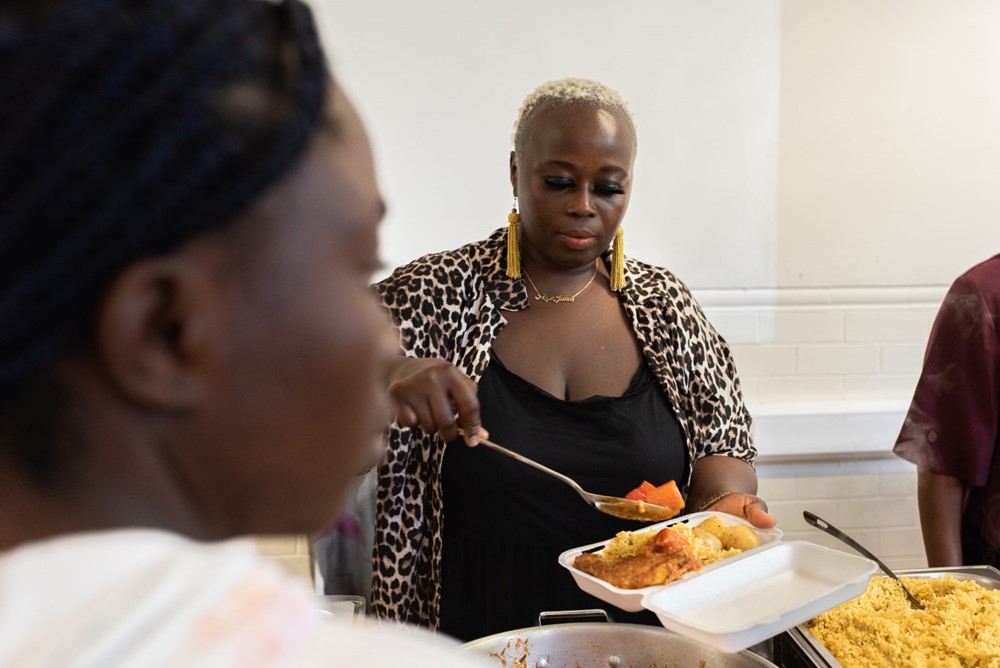 Volunteers at a County Durham charity prepare hot food for those struggling with food poverty
Volunteers at a County Durham charity prepare hot food for those struggling with food poverty
Local organisations are often critical in bridging the gap between the needs of remote communities and the resources available to them, as well as providing a lifeline in times of crisis. For example, following Storm Arwen in 2021, community hubs and church halls set up phone charging, internet and hot food services; generators were supplied to centres in the event of blackouts; and advice services were provided. Community foundations in the North provided emergency funding to help with core costs, volunteer expenses, and charitable services that aided local response.
From 2021, the rate of inflation rose to record levels, reaching 11.1% in October 2022. This exhausted any financial reserves of low-income households, pushing more people into food poverty than ever before. Between April 2022 and March 2023, Trussell Trust recorded that ‘close to 3 million emergency food parcels were distributed by its food banks – the most parcels ever distributed by the network in a year’.
Community foundations quickly launched campaigns to provide a safety net to the charities and organisations helping the worst affected by the crisis.
Michelle: "Point North’s Poverty Hurts campaign looked at multiple ways of supporting communities across County Durham in the wake of the cost-of-living crisis. The Foundation delivered a Warm Spaces initiative over the 2022/2023 winter period for people affected by fuel and energy crises. More than £170,000 was awarded to 137 local groups, with an estimated 23,000 people benefitting from access to warm and safe community hubs."
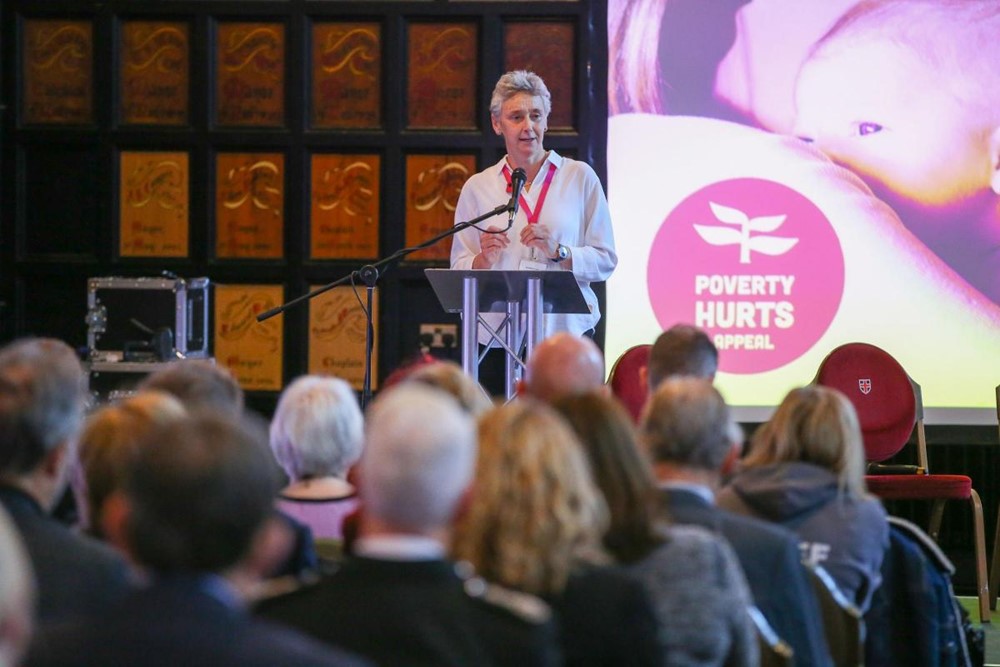 Michelle Cooper talks to people about the need for local giving
Michelle Cooper talks to people about the need for local giving
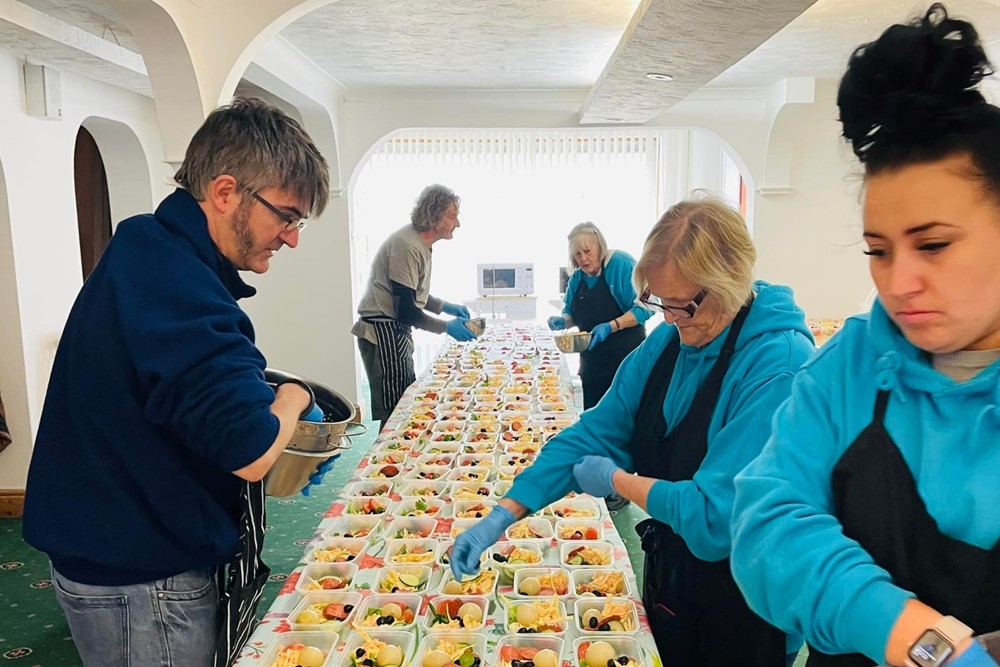 Volunteers at DISC prepare healthy meals for those hit by financial hardship
Volunteers at DISC prepare healthy meals for those hit by financial hardship
Tamas: "Cornwall Community Foundation’s Cost-of-Living-Crisis Fund distributed more than £430,000 during the first nine months.
"Our Surviving Winter Fund had its busiest winter ever in 2022/2023, distributing more than £200,000. The supported projects included foodbanks, money advice centres, resident associations, youth projects, the Samaritans and Citizens Advice Cornwall."
Since then, charities and community groups have continued to see an increase in need as inflation remains high.
Tamas: "Unfortunately, the need has remained high in Cornwall due to rising inequality. The food banks were three times as busy in 2022/2023 as the previous winter and many of them remain open beyond normal working hours so people in work can access them."
What can be done to ensure charities and voluntary organisations are better supported for the future?
We know that donors are passionate about working with community foundations to meet the everchanging needs of communities.
Michelle: "We recognise every winter that the resources of local charities across County Durham become stretched, and that sustainability is a key issue, not only in meeting demand but also the higher costs services are incurring. Point North works closely with donors to repurpose funds where possible, enabling groups to expand their services, pay their additional costs and future-proof their services. In other words, to support groups to stay open to keep doing what they do well."
The actions that funders, individual donors, businesses and public bodies take are pivotal in securing a resilient, sustainable future for people living and working in all areas of the UK.
Core, flexible funding that supports immediate costs and longer-term goals of charities and voluntary organisations will enable more impactful, strategic and long-lasting support to be provided. This allows for more capacity for community-led organisations to address the root causes of rural and coastal issues experienced by communities.
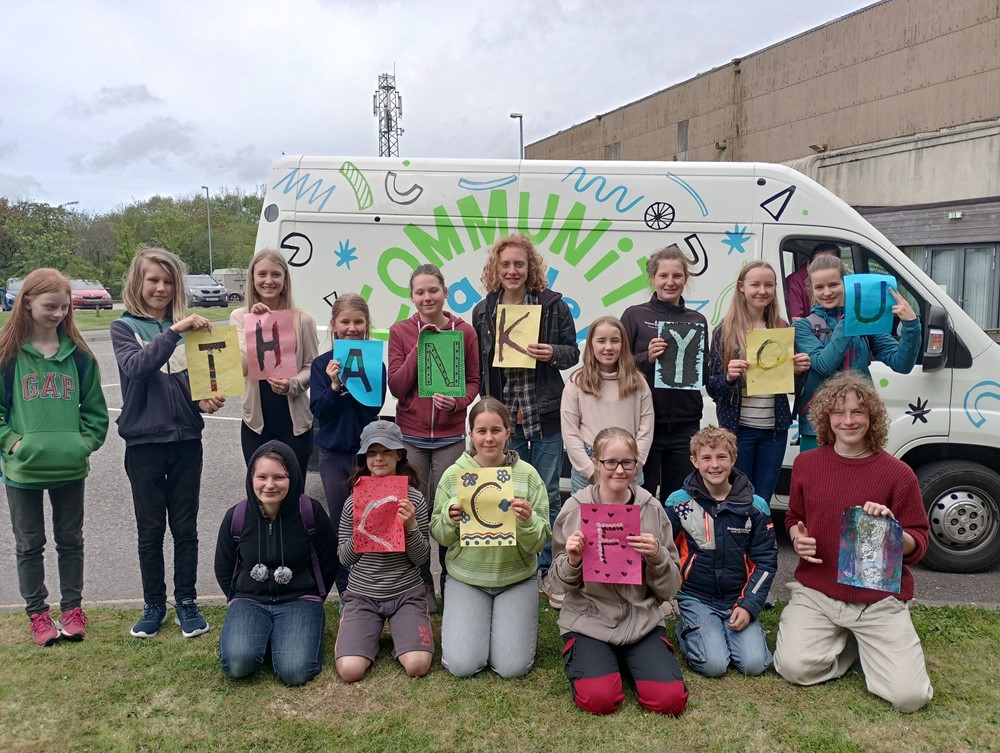 Children and young people at Treverbyn Community Trust in Cornwall
Children and young people at Treverbyn Community Trust in Cornwall
There are lots of creative ways that funders and donors can collaborate to close the inequality gaps, and community foundations are already looking ahead to the future.
Tamas: "Although the majority of our funding is for helping people in immediate need we have a sharp focus on addressing the root causes of the issues in Cornwall. We work with local community land trusts to provide seed funding for their developments of truly affordable homes. This enables families to stay living in the county that they call home – the place where they have their families, friends and future dreams."
Michelle: "Our Enriching Lives programme enables applicants to consider how funding their project or group might continue to create and nurture vital community spaces. Plus, it provides new sources of funding to ‘Warm Spaces’ groups. It is through a continually renewed focus and sustainability-led approach that charities can be better supported by funders."
The unique work of community foundations is to identify the inequalities in all aspects – whether geographical or social – of their regions, and to support charities and voluntary organisations that are embedded in these communities to make a positive, sustainable difference.
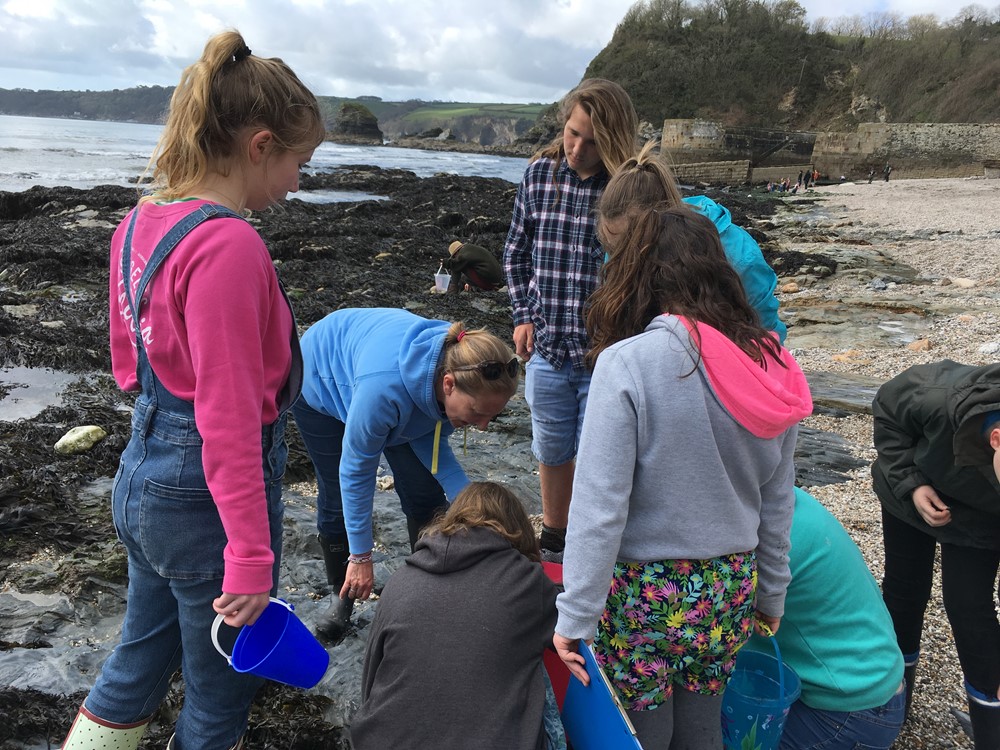 Young people help volunteers from Headstart Kernow identify issues affecting their local beach
Young people help volunteers from Headstart Kernow identify issues affecting their local beach
Get involved
To be involved the community-led action happening around you, reach out to your nearest community foundation

